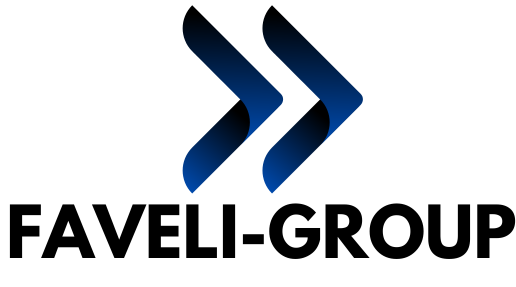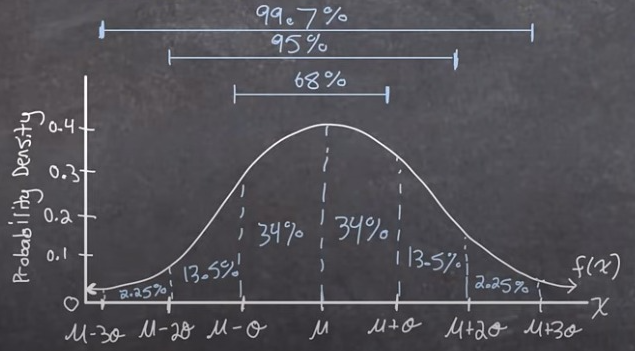Traning Services
At FAVELI-GROUP, we believe that continuous learning is essential for personal and professional growth. That’s why we’ve developed a range of specialized courses designed for engineers, technicians, professionals, and companies who want to stay current and at the forefront of the industrial and technological sectors.
Our programs combine academic rigor, practical application, and global trends in areas such as metrology, telecommunications, innovation, international standards, safety, and more. Each course is led by experienced experts, ensuring a high-level educational experience with content that is both relevant and applicable to your professional environment.
By joining our community, you gain access to up-to-date knowledge, strengthen your skills, and increase your opportunities in an increasingly demanding and competitive market.
Invest in your future with FAVELI-GROUP: specialized, strategic, and purpose-driven training.
Your professional development starts today!
METROLOGY TRAINING SERVICES
Our Metrology Training Services address the critical need for precision and uncertainty evaluation in measurement, especially in regions like the U.S., where there’s a shortage of calibration labs and trained professionals. Accurate measurement is vital for quality assurance in electronics, automation, and telecommunications. A lack of expertise can lead to calibration errors and compromise system reliability. Backed by the NIST (2021), we emphasize the importance of properly assessing measurement uncertainty to ensure network efficiency and safety. Our specialized programs, based on the GUM framework, combine hands-on training, expert-led instruction, and real-world applications. We empower technical teams with the knowledge and skills needed to ensure accuracy, compliance, and excellence in every metrological process.
METROLOGY I (BASIC LEVEL)
GENERAL INFORMATION
This introductory course provides foundational knowledge in metrology for those beginning their journey in measurement and quality control. Through a practical and accessible approach, participants will explore the principles of units, measurement systems, instrument types, basic calibration, and traceability. The content is aimed at improving the understanding of measurement processes applied in industrial, academic, and technological sectors, promoting best practices and ensuring the reliability of results.
METROLOGY I lays the groundwork for advanced studies or the strengthening of professional performance in laboratories, production plants, telecommunications, or any environment that demands accurate and documented measurements.
Course Name: METROLOGY I (BASIC LEVEL)
Training Level: Professionals, technicians, operators, students, and entrepreneurs who require a solid foundation in metrology.
Modality: Online (individual or group) and in-person (group)
Course Type: Theoretical and Practical
Total Hours: 60
Instructor-Led Hours: 30
Independent Study Hours: 30
Prior Knowledge:
Basic knowledge in electronics, telecommunications, mathematics, and statistics.
Materials and Resources:
✓ Course manual
✓ Explanatory videos
✓ Exercise guides
✓ Software: Excel or equivalent
✓ Scientific calculator
1. Prior Knowledge
Introduces essential metrology foundations, including concepts of measurement, accuracy, errors, and types of instruments. The goal is to level participants’ knowledge and create a strong base for advanced topics.
2. Context
Explores the relevance of metrology in industrial and technological environments. Covers principles of traceability, international standards (ISO, NIST), and the role of metrology in quality and safety, linking theory with real-world applications.
3. Deepening
Develops skills in the practical use of measuring instruments, interpretation of results, and quality control. Theoretical concepts are applied to real scenarios, enhancing analytical and critical thinking in metrological processes.
4. Application
Participants will apply acquired knowledge through activities simulating real-world technical and industrial measurement situations. Workshops, guided exercises, and case studies will allow students to apply direct and indirect measurement procedures, select proper instruments, and analyze results considering common errors and traceability principles. The use of digital tools such as spreadsheets and simulators will be encouraged for data processing, result interpretation, and process optimization. This stage aims to strengthen analytical, decision-making, and problem-solving skills in basic measurements. At the end, participants will present an application project that will be evaluated collaboratively and formatively.
FUNDAMENTALS OF STATISTICS
This introductory course aims to provide the fundamental concepts of statistics, facilitating the analysis and interpretation of data in real-world contexts. Topics covered include types of variables, graphical representations, measures of central tendency and dispersion, and an introduction to correlation and regression analysis. Through an active methodology, participants will develop competencies to apply basic statistical tools, strengthen decision-making, and support improvement processes in their academic and professional environments
FUNDAMENTALS OF STATISTICS (BASIC LEVEL)
Training Level:
Professionals, technicians, students, entrepreneurs, and operators who require a basic understanding of statistical tools for decision-making in academic and professional contexts.
Modality:
Virtual (group or individual) and in-person (group)
Type/Nature of the Course:
Theoretical–Practical
Total Hours: 60
Direct Instruction Hours: 30
Independent Work Hours: 30
Prerequisites:
Basic knowledge of mathematics, elementary algebra, and basic use of Excel or equivalent software.
Materials and Resources:
Course manual
Explanatory videos
Exercise guides
Software: Excel, GeoGebra, Jamovi, or equivalent
Scientific calculator
PRIOR KNOWLEDGE
- Fundamental concepts: statistics, data, population, sample
- Types of variables and measurement scales
- Data collection techniques
2. CONTEXT
- Importance of statistics in various fields
- Graphical representation of data: tables, charts, graphs
- Digital tools for statistical analysis
3. DEEPENING
- Measures of central tendency: mean, median, mode
- Measures of dispersion: range, variance, standard deviation
- Introduction to correlation and linear regression analysis
4. APPLICATION
- Solving real-life data cases
- Preparing statistical reports
- Interpretation and recommendations
- Analyzing technical data from telecommunications equipment
- Using basic statistics to evaluate performance and quality
- Identifying patterns and signal behavior in networks
METROLOGY II (UNCERTAINTY EVALUATION)
Course Title: MTEROLOGY II (UNCERTAINTY EVALUATION)
Target Audience: Professionals, entrepreneurs, and students in metrology, telecommunications, quality assurance, electronic engineering, and related fields
Delivery Mode: In-person with virtual support
Course Type: Theoretical-Practical
Total Hours: 60
Direct Instruction Hours: 30
Independent Study Hours: 30
Prerequisites:
Basic knowledge of electronics, telecommunications, mathematics, and statistics.
Materials and Resources:
• Reading material provided by the instructor
• Data analysis software (Excel, MATLAB, R, or similar)
• Scientific calculator
Thematic Content Summary 1: Prior Knowledge
An introduction to the fundamentals of metrology and its industrial relevance is provided, covering key concepts such as accuracy, precision, error, and uncertainty. The differences between measurement, calibration, and verification are explained, along with traditional methods for evaluating uncertainty. Additionally, an initial assessment of participants’ knowledge and experience is conducted.
Thematic Content Summary 2: Context
This section covers the fundamentals of the Guide to the Expression of Uncertainty in Measurement (GUM), principles of metrological traceability, and international standards (ISO, NIST). It explores the application of measurement uncertainty in the telecommunications sector and analyzes its impact on the quality and reliability of industrial processes. Relevant regulations and metrology standards in the United States are also addressed.
Thematic Content Summary 3: In-Depth Learning
This section focuses on methods for evaluating uncertainty according to the GUM. It includes statistical models for quantifying uncertainty, error propagation in direct and indirect measurements, and the analysis of uncertainty in telecommunications equipment and instrument calibration. The use of specialized software for uncertainty evaluation is also explored.
Thematic Content Summary 4: Application
This section centers on practical application through case studies in metrological uncertainty applied to telecommunications. Participants will develop hands-on projects, implement methodologies in simulated and real-world settings, and present their results for peer and instructor evaluation. Constructive feedback and improvement recommendations will support continuous enhancement in uncertainty management.
STUDENT TUTORING SERVICES

Our Student Tutoring Services support academic success through personalized guidance in key STEM subjects. We offer specialized tutoring in Math, Physics, Electricity and Electronics, and Telecommunications, as well as foundational courses in Robotics with Arduino and AI-focused Mathematics. With expert mentors and hands-on learning, we help students strengthen their understanding, boost performance, and build confidence in technical areas essential for future careers in science, technology, and engineering.
MATH TUTORING
…
…
…
PHYSICS TUTORING
ELECTRICITY AND ELECTRONICS TUTORING
Course Title: MTEROLOGY II (UNCERTAINTY EVALUATION)
Target Audience: Professionals, entrepreneurs, and students in metrology, telecommunications, quality assurance, electronic engineering, and related fields
Delivery Mode: In-person with virtual support
Course Type: Theoretical-Practical
Total Hours: 60
Direct Instruction Hours: 30
Independent Study Hours: 30
Prerequisites:
Basic knowledge of electronics, telecommunications, mathematics, and statistics.
Materials and Resources:
• Reading material provided by the instructor
• Data analysis software (Excel, MATLAB, R, or similar)
• Scientific calculator
Thematic Content Summary 1: Prior Knowledge
An introduction to the fundamentals of metrology and its industrial relevance is provided, covering key concepts such as accuracy, precision, error, and uncertainty. The differences between measurement, calibration, and verification are explained, along with traditional methods for evaluating uncertainty. Additionally, an initial assessment of participants’ knowledge and experience is conducted.
Thematic Content Summary 2: Context
This section covers the fundamentals of the Guide to the Expression of Uncertainty in Measurement (GUM), principles of metrological traceability, and international standards (ISO, NIST). It explores the application of measurement uncertainty in the telecommunications sector and analyzes its impact on the quality and reliability of industrial processes. Relevant regulations and metrology standards in the United States are also addressed.
Thematic Content Summary 3: In-Depth Learning
This section focuses on methods for evaluating uncertainty according to the GUM. It includes statistical models for quantifying uncertainty, error propagation in direct and indirect measurements, and the analysis of uncertainty in telecommunications equipment and instrument calibration. The use of specialized software for uncertainty evaluation is also explored.
Thematic Content Summary 4: Application
This section centers on practical application through case studies in metrological uncertainty applied to telecommunications. Participants will develop hands-on projects, implement methodologies in simulated and real-world settings, and present their results for peer and instructor evaluation. Constructive feedback and improvement recommendations will support continuous enhancement in uncertainty management.
TELECOMUNICATIONS TUTORING
FUNDAMENTAL OF ROBOTICS - ARDUINO APLICATIONS
FUNDAMENTALS OF AI MATH
OTHERS COURSES
ENTREPRENEUR TRAINING SERVICES

Our Entrepreneur Training Services are designed to empower emerging and established business leaders with practical skills and strategic tools. From mastering Basic Finance, Excel, and Access to enhancing decision-making through AI Tools and Empowerment Coaching, our programs support real-world growth. With expert guidance and hands-on learning, we help entrepreneurs build stronger foundations, optimize operations, and stay competitive in today’s fast-changing business landscape. Learn, grow, and lead with confidence and clarity.
BASIC FINANCE FOR ENTREPRENEURS
…
.
.
EXCEL FOR ENTREPRENEURS
ACCES FOR ENTREPRENEURS
…
.
EMPOWERMENT COACHING FOR ENTREPRENEURS
…
.
.
AI TOOLS FOR MODERN ENTREPRENEURS
Available Training Modalities
At FAVELI-GROUP, we offer our courses in virtual and hybrid formats, adapting to the needs of each participant. You can choose virtual training, either in group or individual sessions, from anywhere, with personalized support. We also offer in-person group sessions, ideal for teams seeking a collaborative and hands-on learning experience. Flexibility, quality, and personalized attention to boost your professional growth.

CONTACT US
¿Are you interested in our courses? At FAVELI-GROUP, we’re ready to help you take the next step in your training. Contact us to learn more about our programs, formats, and benefits. Whether for you or your team, we have an option that fits your needs. Reach out and get all the details!

